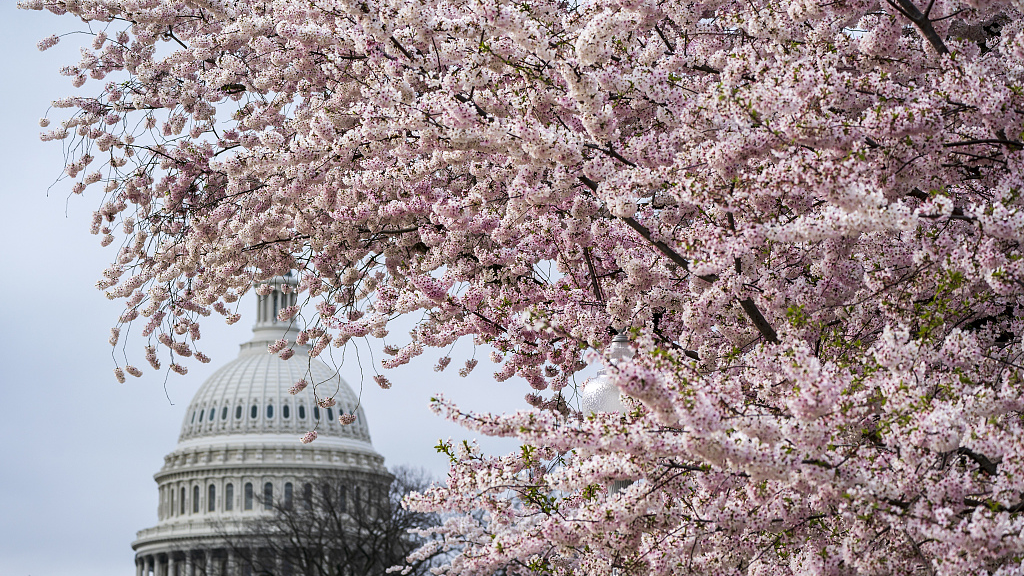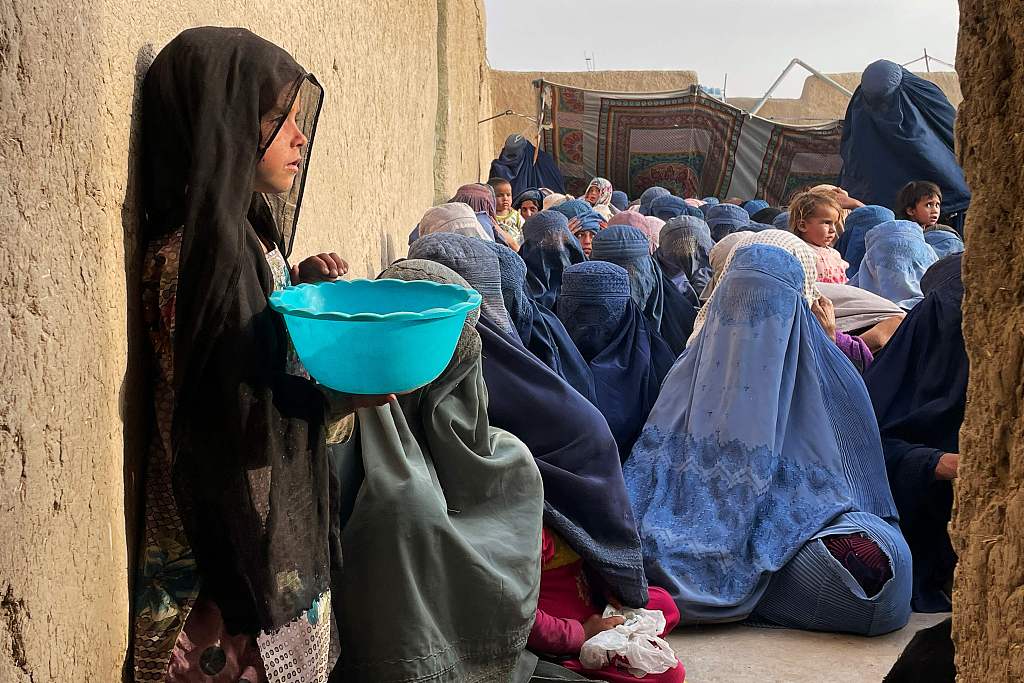
Cherry trees in full bloom frame the Capitol in Washington D.C., U.S., March 27, 2023. /CFP
Cherry trees in full bloom frame the Capitol in Washington D.C., U.S., March 27, 2023. /CFP
Editor's note: Mariam Shah is an Islamabad-based independent researcher in the field of conflict studies and military psychology. The article reflects the author's opinions and not necessarily the views of CGTN.
The United States recently organized the Summit for Democracy, a hybrid event to address the challenges to democracy. Once again, this summit has prioritized form over substance.
To avoid accusations of American-centricity, the Joe Biden administration invited Zambia, Costa Rica, South Korea, and the Netherlands to serve as co-hosts, representing all five continents. During the second Summit for Democracy, the U.S. Agency for International Development (USAID) unveiled "new efforts to advance democracy abroad" under the Presidential Initiative for Democratic Renewal. The USAID is contributing to eight new initiatives, many focusing on policy reforms.
I sincerely hope these initiatives and policy reforms by the U.S. government will not involve more invasions or regime changes abroad in the name of "promoting democracy and human rights."
In analyzing the Summit for Democracy, a few things need to be highlighted. First, the Summit seems like an ideological confrontation rather than a forum to address the essence of democracy and pressing global issues.
Secondly, the U.S. must accept that democracy is not a universal panacea. The one-size-fits-all approach to democracy is certainly and deeply misguided, and the West must come out of the illusion of universal democracy. There are various strands of democracy, and every state has a right to exercise the model that suits them.
Thirdly, the U.S. must address internal issues like domestic violence and polarization before it can credibly promote "democratic ideals" on the world stage.
The recent U.S.-sponsored Summit for Democracy was a veiled attempt to divide and conquer with ideological bias. Democracy doesn't create division; instead, it talks about inclusion, but the Summit for Democracy creates division and violates the spirit of democracy. If the trend continues, there will be more polarization, and block politics will continue to dominate global politics.
Through this summit, the U.S. seemed to form an ideological bloc to confront Russia and China, as their system of governance doesn't come up to their criteria of a "good system." The U.S. keeps dividing the world into "black and white" or "good guys versus bad guys." Establishing and maintaining diplomatic relations with other sovereign nations necessitates a nuanced and sophisticated approach rather than confrontation.
Additionally, the West, especially the U.S., must realize that there can be more than one model to govern. The Western-style democracy might not be the only or ultimate solution to the world's problems. No single formula for democracy works in all contexts. The effectiveness of democratic institutions depends on how a society can adapt to its needs and values. It is not to be forced from outside by external pressures and control.
The situation in Libya, Iraq, and Afghanistan are examples of what happens when you force your supposedly "ideal" system by brutal occupation. The U.S. must realize that times have changed. The world needs multilateralism rooted in the core principles of the UN Charter and the promotion of genuine democracy.

People wait to receive food donation in Kandahar, Afghanistan, April 27, 2022. /CFP
People wait to receive food donation in Kandahar, Afghanistan, April 27, 2022. /CFP
Furthermore, the U.S. has demonstrated to support tyrant regimes when it aligns with the U.S.'s interests. Given this track record, it seems odd for the U.S. to continuously espouse the values of democracy and human rights while failing to uphold these principles internationally.
Ironically, the U.S. and its promotion of democracy are juxtaposed with the country's ongoing issue of gun violence. Data indicates that the U.S. has experienced over 100 mass shootings this year, surpassing a 10-year record. In light of this alarming trend, many American families are grappling with the traumatic aftermath, making Washington's promotion of American-style democracy seem both cruel and hypocritical.
The Western democratic system is currently revealing its vulnerabilities, as recent protests in France and Israel demonstrated. Paradoxically, the more Western nations promote the ideals of individual freedoms and freedom of speech abroad, the more they appear to be choking these same rights domestically. At present, it seems ill-advised for these nations to assume a moralistic posture when engaged in ongoing domestic conflicts and involved in funding military campaigns abroad.
The Summit for Democracy seemed like a hypocritical endeavor in the face of rising domestic violence and polarization. The U.S. must address its internal issues before it can credibly promote democratic ideals on the world stage, as the summit looks even more insipid and lacks the necessary substance to address American society or global issues.
If the U.S. genuinely cares about global issues, it should take tangible steps to solve challenges rather than interfere in the internal matters of other countries, as it undermines the basic tenets of democracy.
Maybe it's time for the U.S. to step down as a hegemon and start thinking about harmonizing and uniting the world rather than dividing it more and more.
(If you want to contribute and have specific expertise, please contact us at opinions@cgtn.com. Follow @thouse_opinions on Twitter to discover the latest commentaries in the CGTN Opinion Section.)